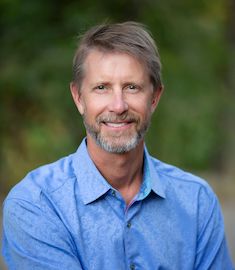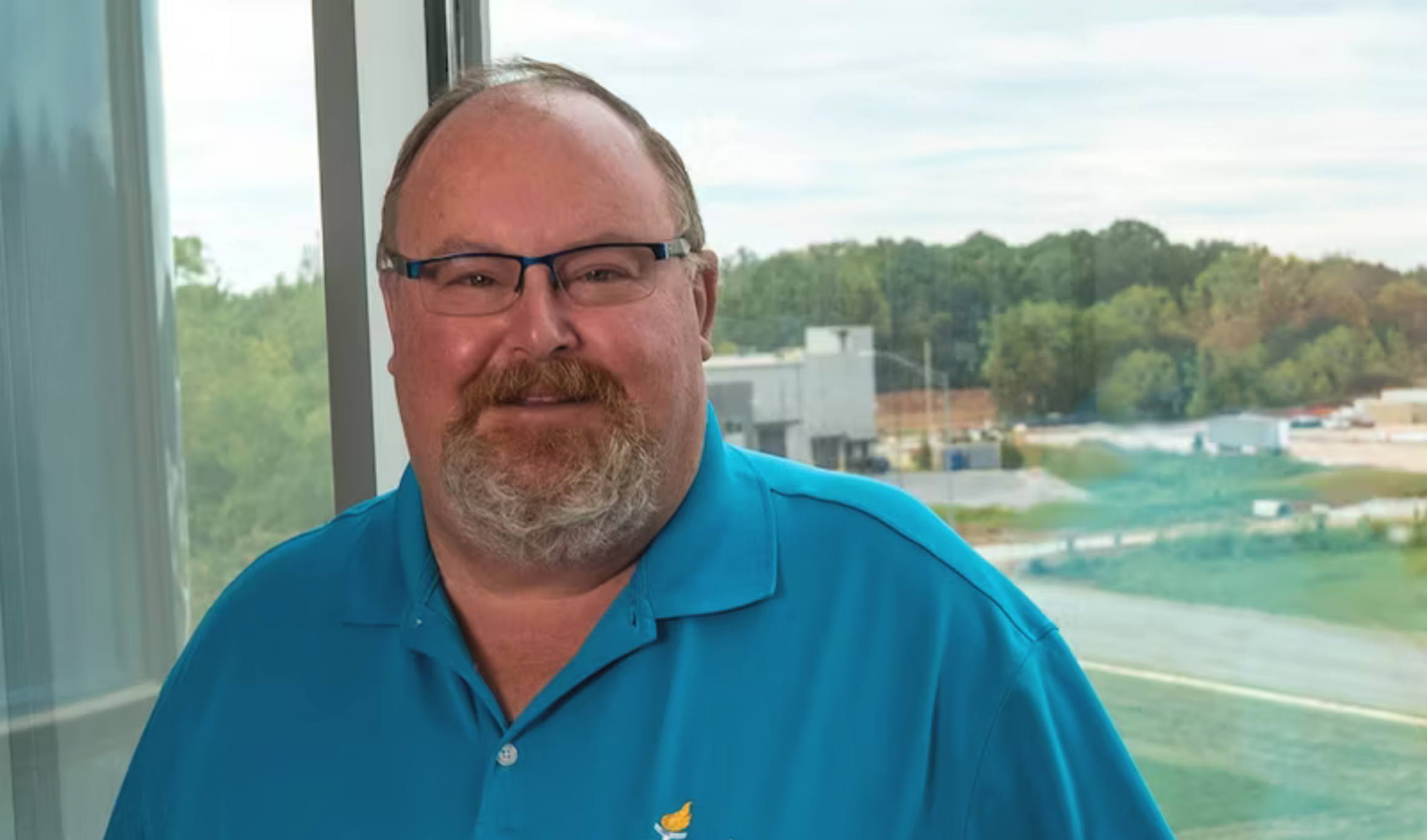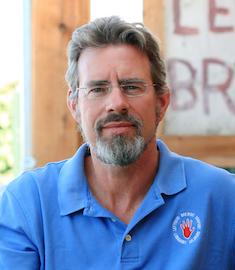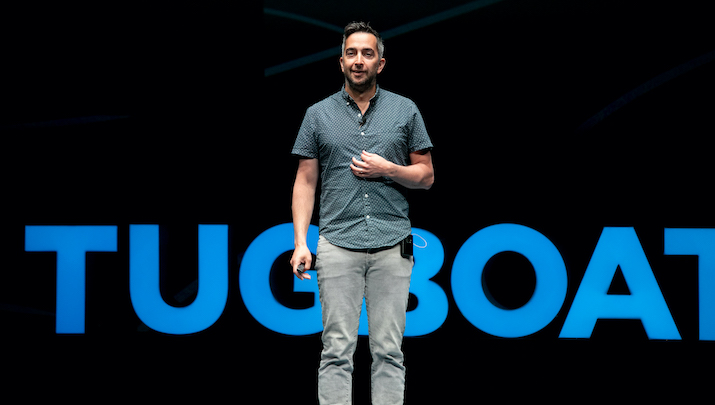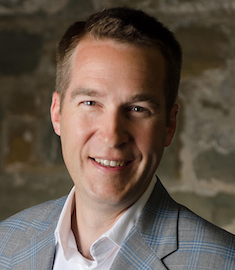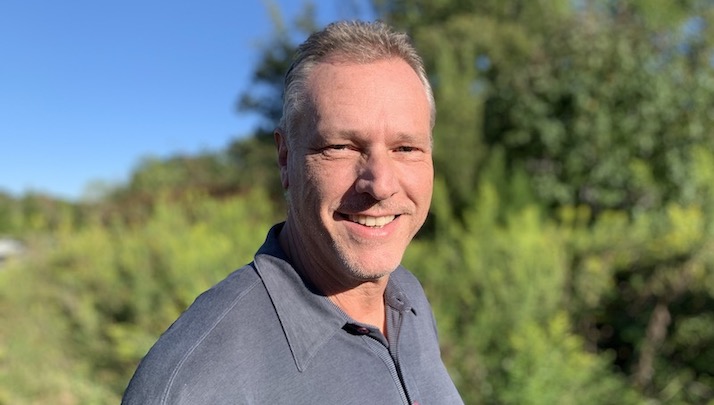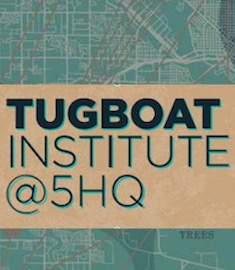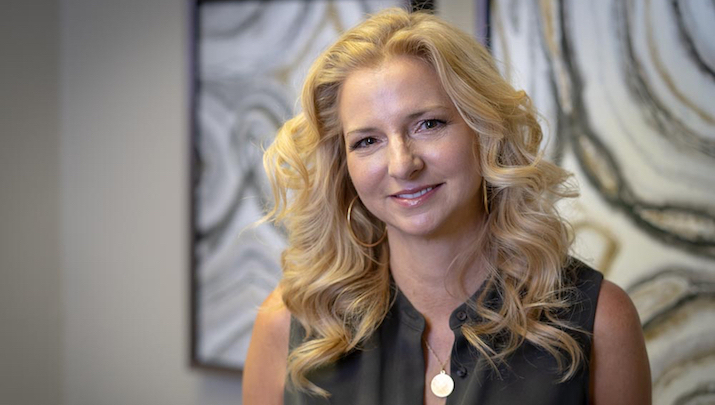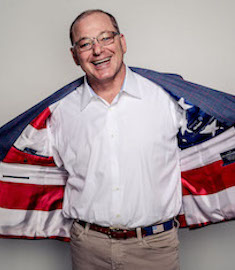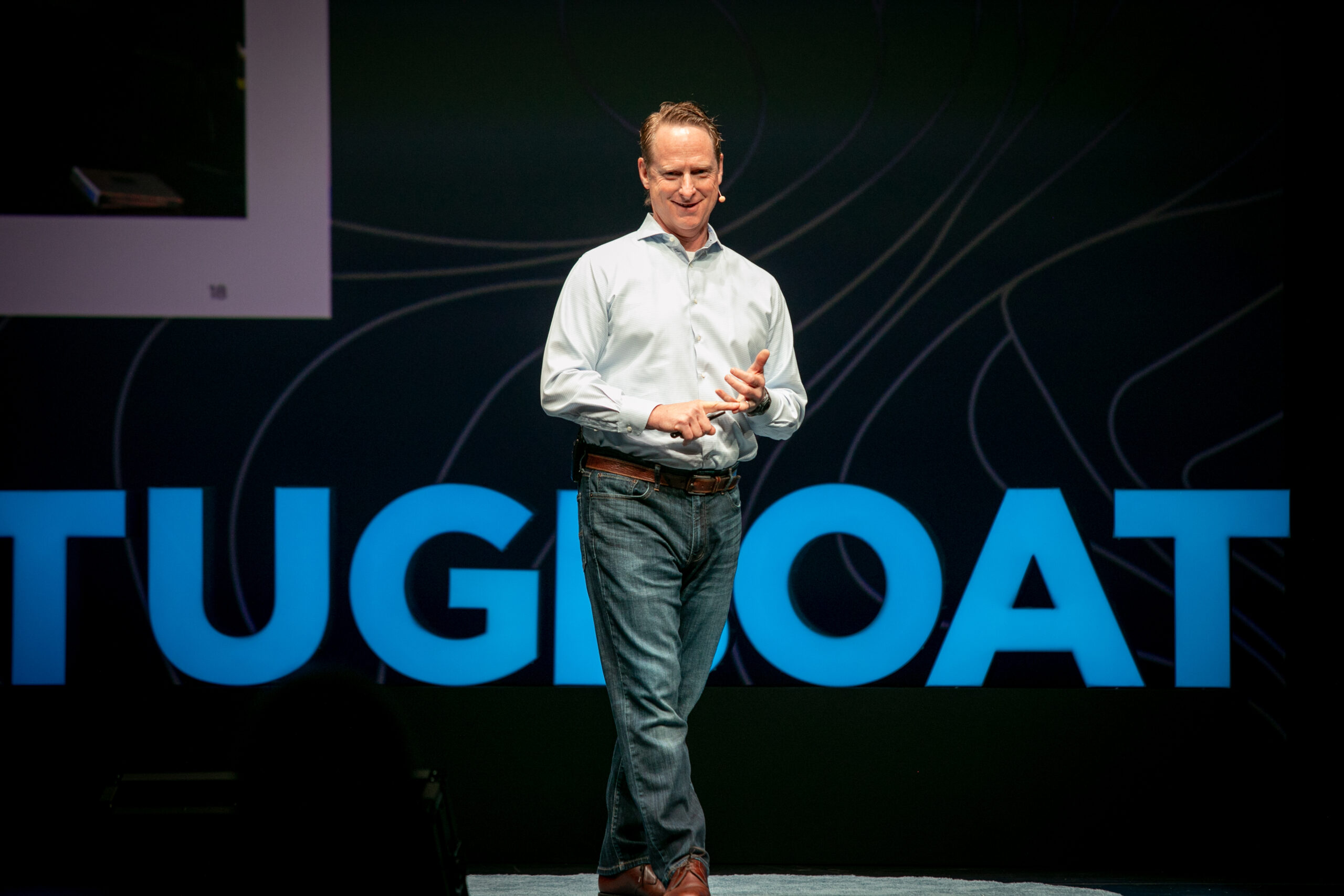Competitive Wages, Employee Lounge with a View, Free Food, Community Spirit: How This Grocery Store Built a Winning Team
As an independent, locally owned grocery store, our Purpose at Jackson Whole Grocer is to bring community together through food. Our alignment with Evergreen® principles sets us apart in our industry, and we’re proud of the programs and practices that keep that Purpose front and center in our business, our town, and our region.
I didn’t start out in the grocery business. I spent my early career in sales and then founded and acquired several businesses before purchasing an existing family-owned grocery store in Jackson Hole, Wyoming. I had been seeking a new business opportunity that would keep me close to my family after years of work that required a pretty relentless pattern of planes, trains, and automobiles. I wanted to do something in my community—and for my community.
Beyond a love for food—my wife and I are passionate natural foodies—I knew nothing about the grocery industry when I learned the business was for sale. But I saw the opportunity to dig into something that had enough size and scale to be interesting, with close ties to the community we loved.
Ten years later, the number of employees and revenue have doubled, and the business has become a community hub. As we grow, we keep the focus on People First front and center. We are committed to impacting our employees and our community members in a positive way.
Here are some of the Evergreen approaches to meeting that goal that set us apart:
Compensation that Works Toward Bridging the Gap
One of our core values is to provide our people a great place to work. To me, at a basic level, that means providing competitive compensation and benefits. Last year, we raised wages 16 percent, which is big in any business and it's certainly big in ours. But we recognize that to support individuals and families facing the high cost of living in our community, that investment, while extending our ROI timeline, is essential and the right thing to do.
One of the key drivers in this decision was the extraordinary dynamic going on in terms of affordable housing our area. The average cost of a single-family home in Jackson is $2.6 million. We have an extreme housing shortage problem. It’s not uncommon for some of our employees to be paying 50 to 70 percent of their pay in housing costs. Working through this challenge will require a multi-faceted approach, but raising wages is a first and important step we can take in taking care of our people. We can’t close the gap, but we are doing what we can to help build a bridge.
Room with a View
In many big box grocery stores, the employee break room is in the basement or a windowless back storeroom—it’s an afterthought. We took a different approach. Visitors come to our area from all over the world to enjoy the natural beauty of this landscape. We think our employees should be enjoying it too. We designed the break room to be on the second floor, next to my office, featuring huge windows with a view of the Snake River Mountain Range, lots of natural light, comfortable furniture, and a kitchen. I want our people to come in, sit down, relax, and enjoy their break. It may be a small thing, but it can make a big difference in the quality of a person’s work life.
Feeding Our Work Family First
In that same break room, we installed shelving and a large refrigerator to offer our people “culls,” food that we can’t sell because it might be just past an expiration date or bruised in some way (think a browning banana or a dented can of beans). It’s a mini market of sorts, where everything is free. These foods are still perfectly edible, but they can’t be sold. Many grocery stores don’t offer culls to their employees for fear that it promotes theft. Instead, they donate it all to local food banks or nonprofits, or worse, it gets sent to the landfill.
We take a different view. We know the cost of living is high in our community, and we feel a responsibility to feed our work family first, then donate the rest our community food rescue program. Our employees leave work with bags of free food, and we’re grateful to be able to provide that benefit.
Community Giving
Like many grocery stores, as you might imagine, we receive a lot of requests for donations—from trays of cookies or bananas for a fun run to much larger asks. We have over 250 nonprofits operating in our community, and everyone has a cause.
About three years ago, after giving for years to a wide variety of organizations, I recognized that in our affluent resort community, much of the support for nonprofits was being directed to environmental and wildlife organizations. I’m a huge supporter of many of these groups and always will be, but I felt that there was an opportunity to focus on “people”, which is more aligned with our purpose.
I decided to turn my focus to helping people, and I partnered with a local organization called System of Care, which coordinates giving to about 35 health and human services organizations in our community, ranging from a community counseling center, to youth and family services, to addiction, domestic violence and wellness programs. We created several in-house programs to generate donations for System of Care, from a “round-up” option that provides customers the opportunity to donate at the time of their purchase, to selling donated artwork on the walls of our café.
This effort has allowed us to become a conduit for the community to give back. It's not just Jackson Whole Grocer writing checks, it's us as a community working together to help one another. It’s incredibly fulfilling to give back and support a lot of these organizations that provide vital services and support to our neighbors and care for our entire community. You'll never go wrong with the focus on people.
At the end of the day, the grocery business is about people—feeding people, providing good jobs for our employees, and serving as a gathering place for our community. We intend to keep working to put People First, in our store and in our community.
Jeff Rice is CEO of Jackson Whole Grocer.
Building a Great Company from Humble Origins
Bill Roark, Co-Founder of Torch Technologies, Inc., Founder and CEO of Starfish Holdings, Inc., and Founder of Freedom Real Estate & Capital, LLC, has built a remarkable Evergreen® company in Huntsville, Alabama, with a deep commitment to service. From very humble origins, Bill has been driven to create opportunity and give back, inspiring his team to do the same.
In this presentation from Tugboat Institute Summit 2020, Bill shares the path that took him from a tar-paper shack to become Co-Founder of a now $400 million defense contracting company and the philanthropic drive that continues to inspire his work.
The Road Home: An Air Force Vet Builds Left Hand Brewing and a Colorado Community
[A note from Tugboat Institute: Please note the postscript at the end of this article, in which the author comments on the connection of this topic to the impact of the COVID-19 pandemic.]
When I retired from the Air Force in 1992, I had no idea I would be the owner of a brewery one year later. And yet, in September, 1993, there I was: proud founder, with my business partner Dick Doore, of Left Hand Brewing in Longmont, Colorado.
The founding of our Evergreen® business in Longmont represented the welcome culmination of a largely nomadic early life. For all of my 32 years up until then, I had been moving pretty consistently every few years—first as the son of an Air Force Officer and then as an Air Force Officer myself. By the time my wife and I arrived in Longmont, I had lived, in this order, in: Tennessee, Ohio, Texas, Germany, Ohio (again), Florida, Japan, Colorado, Germany (again), Nevada, Colorado (again, at the Air Force Academy), Mississippi, Italy, Turkey, and Italy (again).
When I left the Air Force, after a brief time working with my wife’s family in Italy, we flew back to the states, picked up a car in New Orleans, and drove across the country, all the way to the Kenai Peninsula in Alaska. Along the way, as we visited family and friends and many of these new, small microbreweries. We were searching for a hometown. After so many years of constant motion, I was ready to settle, put down roots, and raise our family.
When we landed in Longmont, an evolving, former agricultural town about 20 minutes northeast of Boulder, it felt right. It was close enough to the mountains but not too remote for us with a baby on the way; it offered great quality of life; opportunities for outdoor recreation were abundant and easy to access; and, it had a pretty vibrant and welcoming business community. And Colorado was an early hotbed of craft brewers. We were living between Boulder and Longmont in Niwot. We found a location for a brewery in Longmont. We had found our hometown.
While I hadn’t planned to open a brewery after my Air Force career, I didn’t enter into the industry completely blind. Having traveled widely and spent formative years in Germany, I had been exposed to a whole world of beer that wasn’t even on the radar of most people in the U.S. at that point. I saw the opportunity to introduce both new products and experiences and to connect deeply with the community as a business owner.
My experience living in a small village in Germany, where the local “gasthouses” and the soccer clubhouse all featured “stammtische,” or locals’ tables, as well as my time in Italy, where the locals gathered at the village’s café and bar, had shown me the central role a business like ours could play in creating community. That community-minded, local vision was a driver in our commitment, from our earliest days, to being involved in and giving back to our community. This was our hometown, and we wanted to contribute in meaningful ways.
Early on, we took the obvious steps of joining the Chamber of Commerce and joining various business groups, sinking our roots where there were opportunities. As newcomers to the town we were conscious of the need to connect to raise awareness for our business—we wanted people to try our beer, after all—but also of our desire as residents, parents, and business owners to help shape the community we had so intentionally chosen.
Over the years, we have not wavered in that commitment. We serve on non-profit boards, were involved in founding the original Colorado Brewers’ Guild, and sponsor local events. Left Hand Brewing is a National Bike MS Sponsor, and our Team Left Hand, which has raised over $4.9 million over the last 13 years, rides in events in Colorado and across the country to raise awareness of and research funds for multiple sclerosis. Several years ago, we took over the management of Longmont Oktoberfest, a two-day, community-wide celebration that benefits local nonprofits, including our own Left Hand Brewing Foundation, a 501c3 we founded to support a range of local and regional causes.
Our continual desire to impact our community is an extension of the entrepreneurial spirit that drives our company. I had never really thought of myself as an entrepreneur, but after someone else described me that way early on in the life of our business, I realized that I do actually fit the description. I’m continually looking for a solution, a better way to do things. My team will tell you that’s how I show up in the business, and I think that orientation is reflected in my desire to improve our community, to lean in and address the critical issues that will make a difference for the people who live here.
Our employees absorb this ethos, and they’re involved in these efforts too. Beyond stepping into volunteer opportunities that we make available to them, team members have spun off and developed dozens of businesses in Longmont, fueling our economy and engaging in the community in meaningful ways.
As we head toward three decades in business in our hometown, it’s gratifying to see the impact of our Evergreen® company and our efforts to work with our neighbors to improve the town we love. For years, Longmont had a bit of an inferiority complex, overshadowed by Boulder, just down the road. Today, I receive photos from locals all the time who find Left Hand on offer around the country or overseas and are so proud to tell the bar tender, “Hey, I’m from Longmont and this is our brewery!”
We never had an agenda to be community leaders, but our long-term view of building a great company in the place we had chosen to raise our families meant that we were invested in not just the business but the town from day one. Now, we’re incredibly proud of the role we’ve played—and will continue to play—in lifting our community up and helping to instill pride in the place we call home.
Eric Wallace is President and Co-Founder of Left Hand Brewing.
Postscript 10.26.2020
While socializing in bars and brewery tasting rooms is being severely impacted by the pandemic, we are finding new ways to continue to have an impact and build community. Since we need to physically distance to operate safely, expanding our tasting room into our parking lot made sense. We have also just received approval to build a beer garden next door to the brewery (years in the making).
As the national beer sponsor for Bike MS, we didn’t do much beer pouring at rides around the country since the rides were all virtual, but our fundraising by our eight teams far exceeded our initial expectations. Our 525 team members raised over $525,000 in a year with no actual group rides, providing both emotional support for our team members and continuing financial support for the National MS Society when it’s needed more than ever.
Finally, we helped launch the Longmont Evergreen Opportunity Fund in October. The LEOF is an initiative to impact our community by investing capital into entrepreneurs, ventures, and property development projects within Longmont’s Opportunity Zone. It is an interesting initiative. It’s Evergreen because 10 percent of the management fees will be invested in local founder development and 50 percent of the manager’s carry will be reinvested into the next Evergreen Fund. It’s impactful because we want to build economic vitality and retain companies that are solving problems and creating jobs right here in Longmont.
It is more important than ever to keep our people engaged and support our communities. Staying busy and having a positive impact keeps us inspired and out of trouble!
Pivoting 101: Caviar, Tattoos, and Bingo
I think we could all agree that the word “pivot” has dominated many of our conversations around business—and life in general—in 2020. Brian Canlis and his team at Canlis restaurant in Seattle are exemplars of the power of the pivot. From transforming the storied fine-dining restaurant to a drive-through, to creating a delivery program, to offering drive-in movies in their parking lot, the team has been on a constant path of adaptation and reinvention.
In this presentation from Tugboat Institute Summit 2020, Brian shares insight into the approach that has helped the business thrive over 70 years and the mission that drives the company’s commitment to continue to flex and adapt.
Want to Build a Truly Successful Team? Find Candidates Who Make You Think.
It won’t be news to anybody when I tell you that the construction industry is largely male and Caucasian. Traditionally, the leading sources of talent for firms like ours have been engineering and construction management programs that predominantly produce graduates who fit this profile. Given that landscape, it can be an uphill battle to develop a diverse team. But our Evergreen® construction company, Lease Crutcher Lewis, is committed to that fight because we know the benefit to our culture and the competitive advantage that diversity brings.
To be clear, when we talk about diversity, our priority is diversity of thought. We are not aiming to fulfill quotas, check boxes, or reach specific percentages of ethnic or gender representation. Instead, our primary objective in recruiting and retaining team members is to create a team comprised of different points of view, educational backgrounds, and personal and professional experiences.
We prioritize diversity of thought because research—and our experience—tells us that it leads to innovation and allows companies to be more nimble and more creative, leading to increased productivity and success. And, for us, seeking out diverse thinkers feels more genuine and authentic than hiring based on numbers and percentages. When we aim for diversity of thought, great diversity of all types follows. We think this approach has been a hallmark of our success in developing a diverse team.
Ten years ago, as I was beginning to really grapple with the topic of diversity, I had the good fortune to receive the resumé of a young international student for an entry level engineer position. Vishnu Jhaveri stood out to me because, among the stack of resumés I had received from recent graduates of engineering and construction programs, he had a degree in architecture. I thought that it would benefit us to bring on somebody who could see things from the design side and offer that perspective to our construction teams. When we interviewed him, we immediately saw that he was also a culture fit in terms of his values and operating style.
We hired Vishnu and put him to work as a young project engineer. The fact that he grew up in India proved to be an unintended benefit to our work. Not only did he provide diversity of thought through his professional expertise, he offered the perspective of growing up outside of the U.S. His thinking and approach to problem solving reflect this experience. He offers a different viewpoint that adds value to our business and richness to our culture. Fast forward 10 years, and Vishnu is one of our high-performing project managers. He's a leader within our business, a vocal recruiter for our company, and a champion in our efforts to continue to seek out diversity of thought.
That experience had a significant influence in how we continue to recruit and build our team. We have developed relationships with universities that enroll a higher percentage of international students, people of color, or female graduates. And, we have increasingly pursued “nontraditional” hires, those who may not have an engineering or construction management degree but have unique skills or a background that would allow us to train and develop them within our organization.
Four years ago, we hired Amy Rutz, a junior high school teacher who was looking for a career change. Amy had real passion for the building process and was a culture fit, but she had no experience in the field. We took a chance on hiring her and put her to work as a project engineer, a position she executed really well for three years. Recently, we transitioned her into a role as our training and development coordinator, in which she now pairs the powerful knowledge gained through years as an engineer with her teaching background to run our training and development curriculum for all of our employees.
In our experience, the success of building a team in which people like Vishnu and Amy thrive relies on a culture that consistently supports diversity of thought. I think you'd be hard pressed to find somebody in our company who hasn't heard the CEO talk about the power of diversity of thought and how important it is to us and how we operate as a company.
This messaging is reinforced by two of our core values—"Trust and Respect" and "Fulfillment"—which similarly support diversity of thought. Unless you trust that your teammates will listen to your point of view, be open to your perspective, ask quality questions to seek understanding, and respect you for sharing your opinion, you’re not likely to share your thoughts. If trust and respect are present, ideas are shared openly and diversity of thought rises to the surface, propelling innovation. And, when you are free to share your thoughts and ideas—to bring your whole self to work each day—you are much more likely to be fulfilled in your job.
I’m proud of our intentional focus on diversity, but I also know that we can do much more. I am looking forward to continuing to help our recruiters gain awareness of unintentional, subconscious biases that may be barriers to hiring. We will offer ongoing coaching to team members involved in hiring to help them understand how their personal background might produce biases when it comes to recruiting, hiring, training, and promoting people.
As a leader, I know that raising awareness of these issues can be uncomfortable and may require removing people from the hiring process who can’t move beyond these biases. That takes bold leadership and decisiveness, but if there are team members who are perpetuating unintentional biases and can’t rewire, we need to seek out someone else to recruit—someone who recognizes the value in diversity of thought. Because for us, continuing to foster diversity and growing our company to reflect the widest possible variety of thought, perspective, and experience is essential. It’s through diversity that we will continue to innovate and thrive for the long-term.
Bart Ricketts is CEO of Lease Crutcher Lewis.
Sustained Growth in an Unprecedented Time
Dr. Gary Kunkle is a leading academic researcher in the area of sustained company growth over time and Founder of Outlier LLC. In this interview with Dave Whorton, Founder and CEO of Tugboat Institute, presented during Tugboat Institute Summit 2020, Gary offers insight into several of the key variables that set sustained growth companies apart and perspective on the role these businesses play in the economy and in communities.
Buckle Up: Evergreen Inspiration Fuels Tugboat Institute @5HQ Road Trip
When Bill Roark, Co-founder of Torch Technologies and CEO of Starfish Holdings, was growing up in Eastern Kentucky, he had a dream: To own an auto parts store. With what he refers to as a “serious car habit,” the teenager spent every minute he wasn’t in school or courting his girlfriend—now his wife of 40 years—working on cars.
Fast forward, and Bill is living a dream he couldn’t have imagined then but has become his life’s work: “Lighting the pathway to freedom.” Bill leads a 100 percent employee-owned defense contracting firm in Huntsville, Alabama, with a mission to, as Bill describes it, “support our soldiers in the best way possible to make sure they have what they need to be successful and come home safe.” Torch Technologies, which generated over $500 million in revenue in 2019, develops, tests, and builds technical contributions for the military.
On October 13, Tugboat Institute members had the opportunity to learn from Bill and from Torch Technologies’ CEO John Watson, during the first stop in a series of Tugboat Institute @5HQ Fall Exemplar Visits to Evergreen® companies. The morning program at Torch began with a Fireside Chat with Bill and Tugboat Institute Founder and CEO Dave Whorton, which shed light on Bill’s personal story and key components of the business. John Watson then offered a deep dive into innovation planning and practices at Torch, and Bill followed with insight into the culture and compensation practices that attract top talent and help fuel sustained growth at the company.
Following the Huntsville visit, the event series continued, with three more stops at Tugboat Institute member-companies across the country. Each visit was attended in person by a small group of Tugboat Institute members, in accordance with local health and safety guidelines, and was live streamed to the wider membership. At each stop, members heard from company executives in the morning, participated in a Q&A session with each speaker, and connected via small-group breakouts (Zoom and in-person) to reflect on the morning’s content. For those who attended in person, the afternoon included a tour, lunch, and a Tugboat Institute Brain Trust.
The second stop was Boise, Idaho, on October 15, where Bret Moffett, CEO of POWER Engineers, along with CAO Jim Haynes and CFO Chuck Kemp, welcomed members and offered insight into the Idaho-grown global engineering firm. Through Bret’s Fireside Chat with Dave Whorton, members learned about the CEO’s upbringing and early affinity for computer science, key mentorship relationships that have led him to his current role, and the mission and values that guide the company. The Fireside Chat was followed by presentations by Jim Haynes and Chuck Kemp highlighting POWER’s culture of ownership and employee engagement.
On October 19, members visited ABC Home & Commercial Services in Austin, Texas, where they were welcomed by the company’s President, Bobby Jenkins. In a Fireside Chat with Dave Whorton, Bobby shared the incredibly close family connections that serve as a foundation for the company, Bobby’s love for the work that allows him to provide services that help his customers live healthier and safer lives, and his commitment to hiring exceptional talent to continue to grow and diversify. His dedication to philanthropic work in the communities he serves was also clear, as he described efforts he and his team have led in Austin, reflecting his philosophy that “Doing good is good business.”
Matt Burns, ABC’s Vice President and CFO, then presented the company’s story of diversification, from pest control to a now-wide array of home and commercial services, a model propelled by leveraging the existing customer base over time. The morning concluded with Bobby’s insight into the unique succession planning on his father’s part that led to his leadership of the Austin business, as well as to the establishment of two entirely separate companies led by his two brothers, and his current efforts toward planning for G2 to G3 succession.
The final stop of the Tugboat Institute @5HQ series, on October 21, was hosted by Chrissy Nardini, President of American Metals Supply Co. (AMS), a family-owned sheet metal distribution company headquartered in St. Louis, Missouri. Founded by Chrissy’s father in 1962, AMS has grown through his and her own leadership from one location in Springfield, Illinois to eight locations in six states. In a Fireside Chat with Dave Whorton, Chrissy shared the story of her entry into the family business, the unique, focused distribution model and laser focus on customer service that drive the company’s success, and the personal true north she has found in parenting her two adopted sons.
Following the Fireside Chat, Shelly Liley, Head of Employee Engagement at AMS, detailed the expansive employee benefits and People First orientation that drive recruitment and retention efforts at the company. COO Chuck Hitchcock then offered insight into the HVAC industry to provide context for the unique product niche AMS occupies in an otherwise commodity market. He described how this product focus, tied with high service levels and customer intimacy, drive customer loyalty and their above-industry profits.
There’s no question that Tugboat Institute events in 2020 have looked and felt different, and Tugboat Institute @5HQ was certainly a new take on the organization’s Fall Exemplar Visit experience. What remained consistent in this event series, as in all Tugboat gatherings, was the curiosity, generosity, and wisdom shared among these leaders, who, bound by their commitment to the Evergreen 7Ps™ principles, came together to learn from and support their peers.
Diana Price is Content Director at Tugboat Institute.
Recipe for Success: How I Incorporated Family and Community into My Business
Alissa Leinonen is the award-winning Founder & CEO of Seattle’s largest and longest running woman-owned catering and boxed-lunch company, Gourmondo Co. What began as a small, four-table lunch spot in Pike Place Market over 20 years ago is now a leader in the Pacific Northwest catering industry. There is much about Alissa and her success that is remarkable, but perhaps most inspiring is her commitment to People First—to her family, her employees, and her community.
In this presentation from Tugboat Institute Summit 2020, Alissa describes how that commitment to People First has guided her throughout her journey as an entrepreneur and through the challenges of the COVID period, when over 24-hours in the early days of the pandemic she saw 80 percent of her business disappear. Alissa’s remarkable pivot to serve her community and save her business is an inspiring Evergreen success story.
My Business Grows 300 Percent Every Fall. Here’s What that Has Taught Me.
[A note from Tugboat Institute: Please note the postscript at the end of this article, in which the author comments on the connection of this topic to the impact of the COVID-19 pandemic.]
As a manufacturer of industrial heating and cooling technology, our business, Cambridge Air Solutions, surges 300-400 percent each fall. Everyone generally wants to have those systems installed in new construction before winter, and if you’re replacing your system, you typically do so in the last few months of the year. To meet that cyclical demand, we hire a large number of seasonal employees.
Hiring, training, and integrating a seasonal workforce can present challenges, but we have developed an approach that is guided by our Purpose, which is to enrich every life we touch. We don’t want to simply hire temporary workers without considering the long-term. We want to enrich their lives and behave toward them as we do toward all of our employees, customers, and suppliers: with unconditional love and high expectations.
This approach toward our seasonal employees led to the creation of Cambridge Unleashed, a 4-6-month seasonal work program developed by our Vice President of Human Resources, Meg Brown. The goal was to provide opportunities for seasonal employees to develop hands-on lean manufacturing skills and experience that will help them either progress into a full-time position at Cambridge Air Solutions or, if we don’t have a position for them, launch a career at another firm.
A central pillar of the Cambridge Unleashed program is a video series that we developed to showcase our seasonal employees’ experiences and expertise as they grow and develop in their role—and specifically their innovations related to the principles of lean manufacturing.
Every seasonal (and long-term) employee is required to read Paul Aker’s book 2 Second Lean: How to Grow People and Build a Fun Lean Culture. This book lays the foundational understanding of lean and describes the simple, “fix what bugs you” approach to waste reduction. Alongside the skills training they undergo, this education in lean allows seasonal employees (who we refer to as “unleashers”) to step into the rhythm of our operation and their specific roles ready for success—and primed to offer insight into continuous improvement.
Our daily schedule includes a 15-minute morning meeting, which all unleashers attend, which includes a review of revenue and other milestones and highlights process improvements. After the morning meeting, we dedicate 30 minutes to non-production time, during which we don't want employees producing a product or jumping into their functional roles. Instead, we ask them to focus on how they can make their job easier, better, safer, cleaner, or a help somebody else solve a problem—and make a video sharing their improvement.
Each day, we highlight the improvements and innovations that our employees, including the unleashers, develop during this period in our daily Morning Meeting. Each video shares an employee’s lean innovation, showcasing employees’ creativity and skills.
The videos ultimately provide several important benefits to the employees and to Cambridge Air Solutions. First, if we do not have a position for the seasonal employee after their temporary position ends, their improvement videos are compiled in a playlist they can use to promote their skill sets and innovations to prospective employers. In addition to helping unleashers share their skills and innovations, the daily habits and continuous improvement mindset that these videos reflect, and which are central to our culture, serve to attract unprecedented numbers of candidates when we have open positions. This past year, we were seeking to hire 20 unleashers to fill seasonal roles, and we had 574 applications. And that was with a four percent unemployment rate.
Beyond the video series, the broader Cambridge Unleashed program provides seasonal employees opportunities to fully engage in our culture, take on short-term leadership roles, and connect with long-term employees. The additional focus on training and engagement for these employees has resulted in tremendous improvements to our safety record and production capacity and throughput. And, we've seen the morale of the plant grow across the board as unleashers and full-time employees connect and increasingly recognize that we’re all pushing toward the same common goals. Now, we train together, we innovate together, and we celebrate together.
Personally, watching the Cambridge Unleashed program develop and seeing the benefit to the individuals and to our Evergreen company has been extremely rewarding. When we help people tap into their creativity to solve problems at work, it not only benefits our process and productivity, it enriches and enhances lives beyond our plant. Whether they are working with us for six months or for many years, we want our people to go home at the end of the day knowing they have created valuable solutions because when they do, they bring the confidence and fulfillment of that experience into their relationships with their families and their engagement in their communities.
John Kramer is the CEO of Cambridge Air Solutions.
Postscript 09.11.2020
In the wake of the COVID-19 pandemic, our company shifted all of our daily rhythms to a virtual format, which was an early practical step to ensure safety. In a broader sense, we have seen a significant impact to our ability to attract applicants, resulting in a lower volume in our Unleashed recruiting pipelines than prior years. However, we are able to close the candidates who do apply and get them onto the team, which I believe points to our ability to demonstrate safe work practices even during COVID. In addition, the “Protect This House” rallying cry, which we embraced in the early days of the pandemic, has been a key step toward preparing for the busy season. Our team members are motivated to bring in Q1 of FY21 and willing to do what it takes to keep themselves safe while also continuing to make product for our customers.
Leadership in a Time of Uncertainty
Navigating the wake of the COVID pandemic will continue to present challenges and uncertainty for Evergreen businesses. In this period, it can be helpful to look to leaders who have persevered through difficulty and maintained a focus on their purpose and their people.
In this welcome presentation from Tugboat Institute Summit 2020, Dave Whorton, Founder and CEO of Tugboat Institute, offers insight into George Washington’s exemplary life and career and shares inspiration from this early Evergreen leader.
